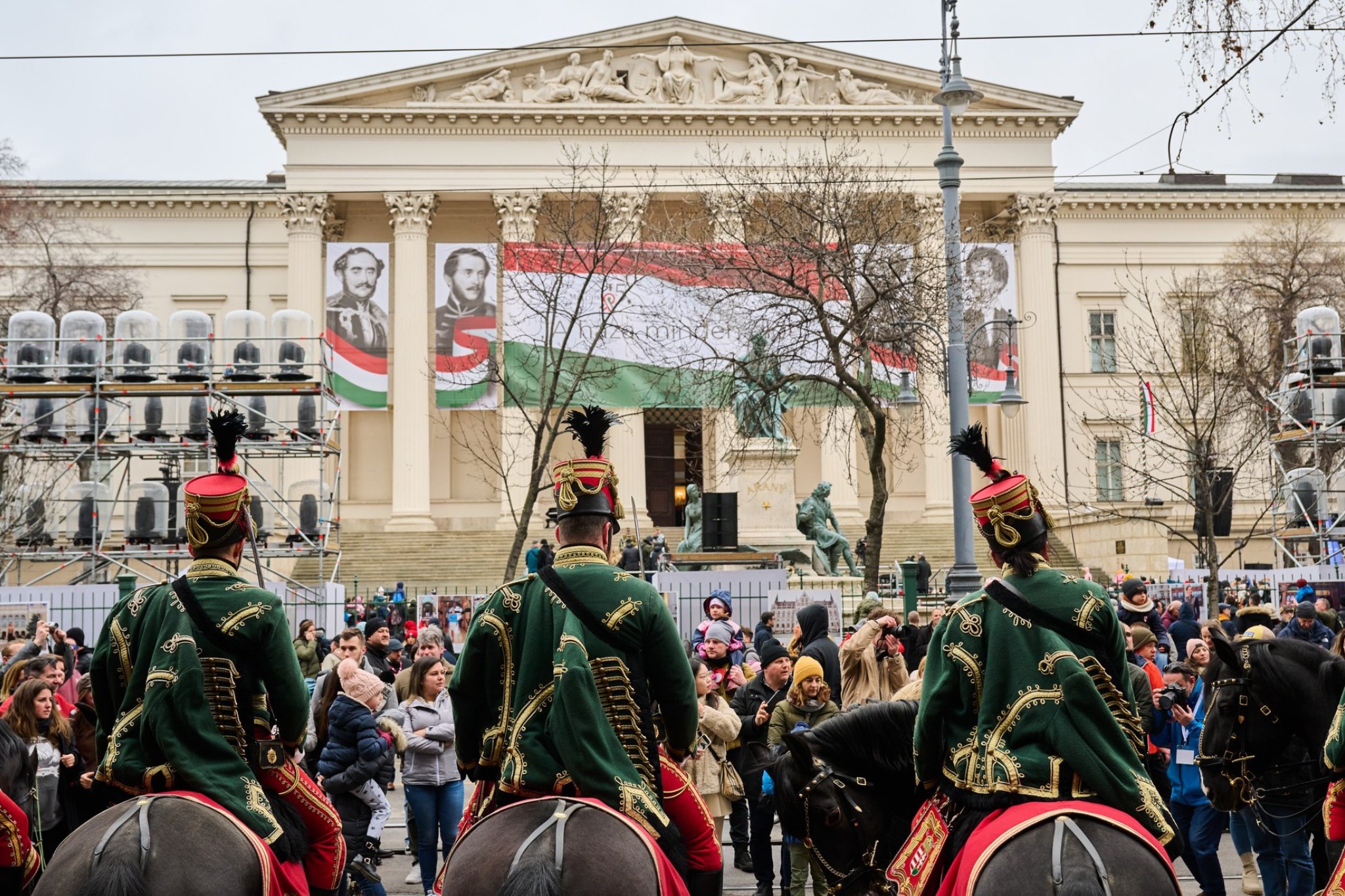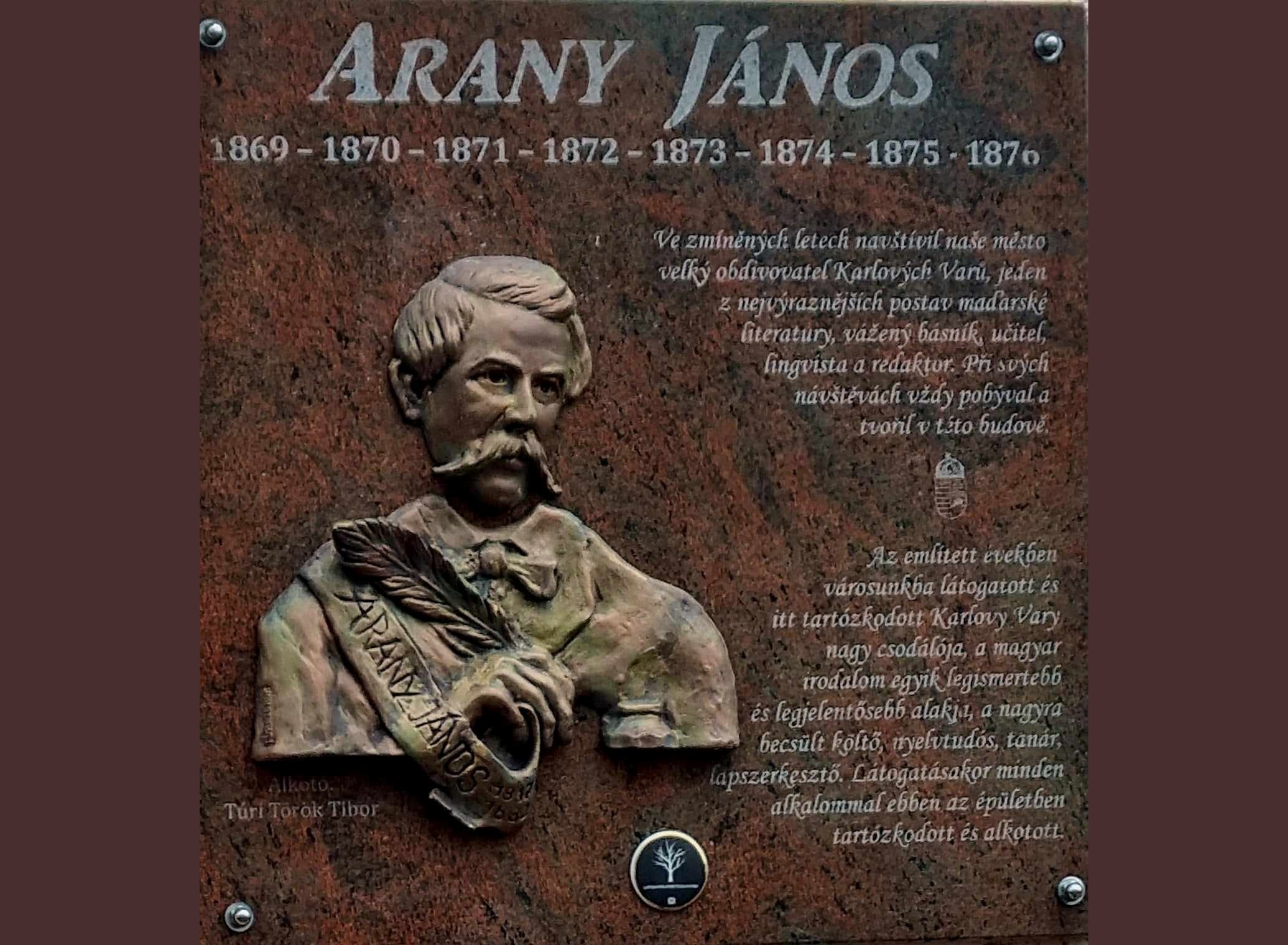
The ceremonial programs will start with a speech by Prime Minister Viktor Orbán at 11 a.m.Continue reading

A new memorial plaque to Hungarian epic poet János Arany was unveiled on Sunday in Karlovy Vary, western Bohemia, Czech Republic.
The inauguration of the new memorial plaque was attended by Katalin Szili, Chief Advisor to the Prime Minister, Andrea Pfeffer Ferklová, mayor of the spa town, Anna Rákóczi, President of the Association of Hungarians in the Czech Republic, András Baranyi, Hungary’s Ambassador in Prague. The ceremonial speech was given by Szili.
The inauguration of the new memorial plaque of János Arany comes at a time when Hungarians are commemorating the Ides of March, the events of 1848-49,”
stressed Katalin Szili.
“March 15, 1848 is the birthday of the nation,” because it brought revolutionary changes, she added. As a result of these events, a new system was born, and that is why the revolutionary struggles of that time are always remembered by Hungarians all over the world.
The politician noted that this was also important, because today “a national cohesion has been established, the basis of which is provided by the Fundamental Law, stating that the Hungarian state bears responsibility for all Hungarians living beyond its borders, whether in the Carpathian Basin or anywhere else in the world.”
Szili thanked the Hungarians in the Czech Republic for preserving and nurturing what is most important to them: their Hungarian mother tongue, culture, and traditions, and for protecting their identity. “There is a community here that is interested in preserving the culture that Arany János is a hallmark of. With the plaque, we are not only commemorating the great poet, but also honoring a community,” she underlined. She said that the fact that the Hungarian nation is still alive is also due to the fact that the Hungarian nation has been reunited. “Our spiritual heritage reminds us that it is always important for us Hungarians to defend our national sovereignty and preserve our Hungarian identity in all circumstances,” she highlighted.
The memorial plaque, made of Indian granite, is the work of Hungarian sculptor Tibor Túri Török. On the upper part of the plaque, under the name of János Arany, are the dates (1869 to 1876), on the left side is the relief portrait of the poet, while on the right side, the following text in Czech and Hungarian is written below each other: “During the years mentioned above, a great admirer of Karlovy Vary, one of the most famous and significant figures of Hungarian literature, the esteemed poet, linguist, teacher and newspaper editor visited and stayed in our town. Every time he visited, he stayed and created in this building.”
One of his most famous poems is A Walesi Bárdok (The Bards of Wales). Arany wrote this poem when Franz Joseph I of Austria visited Hungary for the first time after defeating the Hungarian Revolution of 1848-49. Some remarkable pieces of Arany’s works have been translated to English by Watson Kirkconnell and Edward Dundas Butler.
Via MTI; Featured image via Facebook/Dr. Szili Katalin